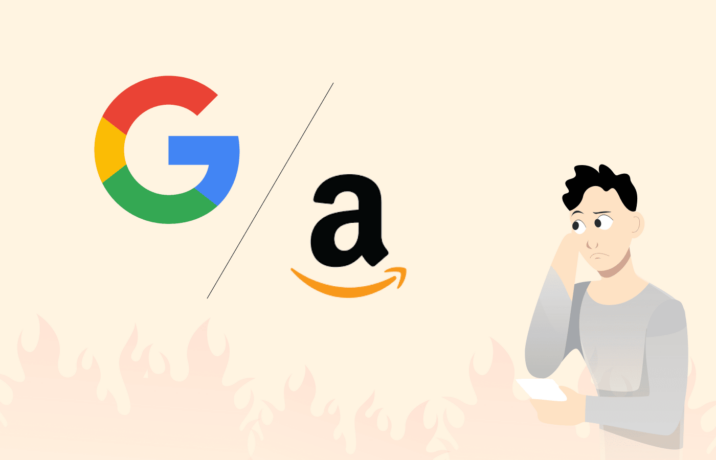The National Commission for Informatics and Freedoms (CNIL), France’s digital privacy defender, posts heavy fines against the tech giants on infringement of cookies law.
The privacy watchdog has fined Alphabet’s Google €100 million ($121 million) and Amazon €35 million ($42 million) over the use of online user data tracking through ads. Cnil recorded unlawful activities from both companies on French websites, saying that they were not in compliance with the legislation on cookies.
On December 10, Cnil reported that the tech titans had downloaded cookies without users’ knowledge. Google and Amazon stirred their policy regarding online advertisement and took advantage of tracking users’ data.
French police for digital privacy, particularly criticized Google.fr and Amazon.fr for placing cookies on users’ internet without their prior consent.
Is that a theft charge on multi-tech deities?
The U.S. trillion-dollar rivals have faced heavy sanctions. These fines’ scale is unprecedented in Europe, being the biggest against Google and the third-biggest against Amazon.
Going against any legal rule is considered to be immoral and punishable. On several occasions, Google has admitted that they track user’s data through various sources, cookies being one of them. Technically it might not be theft, but it is a cybersecurity breach, going against the EU’s laws.
Consequently, the U.S. Federal Trade Commission (FTC), including 48 Attorneys Generals, have filed a lawsuit against Facebook for dominating social media. As per the filing, the FTC is forcing Zuckerberg to sell off Instagram and WhatsApp.
Alas! The social tech giants are creeping into the user’s personal life by tracking each move they make online. Apart from big Pros, these companies leave you with more significant cons.
Cnil is an attacking defender as they keep on checking what’s going around. Back in 2019, Cnil charged Google a whopping €50 million for not having a valid legal basis to operate users’ personal data for its services.
What’s the response of Google and Amazon?
Cnil stands with its changers, proving that the scale of these breaches and the magnitude of the fine is well-aligned with these big firms’ stature. Google search engine nearly owns a 90% market share in France, whereas Amazon has more than 20% e-commerce market share.
However, Google and Amazon argued that Cnil couldn’t impose these sanctions as their European head offices are based in Ireland and Luxembourg.
Cnil replied that 60% of Google’s fine would be paid by its U.S.-based Google LLC, while the rest by Google Ireland LLC.
In that premise, Amazon’s penalty is to be paid by its Luxembourg-based enterprise.
In a statement, Google stated that they have all the records and transparent controls. The company has strong internal data governance that efficiently secures its data privacy. Denying French ePrivacy claims, Google said they overlooked their efforts and also the fact that French laws are uncertain.
The e-commerce leader also opposed Cnil’s decision. Amazon highlighted they always update their privacy practices, ensuring customer satisfaction.
Nevertheless, the Cnil has warned both companies to remove illegal cookies in three months. If they oppose this, they can face a further penalty of €100K.
